MOUNTAIN PROVINCE, April 3, 2023 – A year since the conclusion in Cordillera, the Bureau of Fisheries and Aquatic Resources – Special Area for Agricultural Development (BFAR-SAAD) Program resumes giving out fisheries livelihood assistance to identified farmers associations in the municipalities of Sadanga, Paracelis, Besao, Sagada, Barlig, and Sabangan, Mountain Province.
Each of the six (6) fisherfolk groups received 23,000 fingerlings and feeds required for one (1) cropping period under the FY 2023 Tilapia Culture in Pond project. The package is worth Php 1.6 million for the first cropping, and one of the proposed projects suited to the communities in Mountain Province.
Cultivating tilapia can be an alternative source of livelihood for farmers and fishers to increase their income and ensure food is on the table. Aside from growing in a pond, folks also practice tilapia culture in tanks, and rice-fish alternate farming. With the existing irrigation and spring as their sources of water, a farmer can establish his own monoculture fish farm.
In the recent data released by the Philippine Statistics Authority (PSA), for freshwater fishpond, tilapia production increased by 76.85% from 1.08 to 1.91 metric tons in the first quarter of 2020 and 2021 in Mountain Province.
The Adawshat Integrated Farmers and Fisherfolk Association (37 members) in Sadanga, Paracelis “Uggadiw” Farmers and Fisherfolk Association Incorporated (31 members) in Paracelis, and Golinsan Fisherfolk and Farmers Association (29 members) in Besao are the new beneficiaries for SAAD Phase 2.
The Pide Ulnos Kabiyagan Organization (44 members) in Sagada, the Barlig Farmers and Fisherfolk Association Incorporated (46 members) in Barlig, and the Ug-ugbo Farmers and Irrigators Association Incorporated (29 members) in Sabangan are Phase 1 recipients who continued to receive support fishery inputs after being listed as beneficiaries for the Program’s next phase based on the Beneficiary Needs Assessment conducted in the province.
In 2019, the aforementioned FAs benefited from BFAR-SAAD’s tilapia culture project but this was halted due to limited funding. This restrained the FAs’ transition to community-based fishery enterprises. Recurring groups without overlapping DA and BFAR support for a minimum period of two (2) years are eligible to qualify for SAAD Phase 2 assistance.
One of the project recipients in Sabangan, Glen B. Abad of Ug-ugbo Farmers and Irrigators Association Incorporated shared, “I started the aquaculture venture with my interest to earn a living and expand more of my area. The expansion came to an idea when I saw that fish culture is a lucrative activity, especially during the lockdown.”
Abad received the SAAD tilapia culture project in 2019, operating in a 300-square meters (sqm) pond area that he later expanded to 500sqm.
Each of the 6 FAs has around 4600sqm consolidated pond area. After the simultaneous stocking of tilapia fingerlings, the FAs expect to harvest this September 2023. At the same time, they will also receive fingerlings and feeds from BFAR-SAAD intended for the subsequent croppings.
The Cordillera Administrative Region has a relatively low fish sufficiency level of 10.76% (BFAR-CAR, 2021) in contrast with other coastal areas such as Region 9 (338%), Region 12 (218%), MIMAROPA Region (166%), and Region 6 (127%). This is due to limited fishery resources and opportunities for both municipal inland and aquaculture production being situated in a landlocked area. BFAR-SAAD CAR concentrates in the far-flung communities, where fish supply is scarce, ushering fish farmers to practice fishing and aquaculture to aid in food security, and later on, enterprise development. ###
Writer: Rodelyn F. De Vera, BFAR-CAR Community Development Officer I
Source: Michelle A. Peralta, BFAR-CAR-SAAD Alternate Focal Person

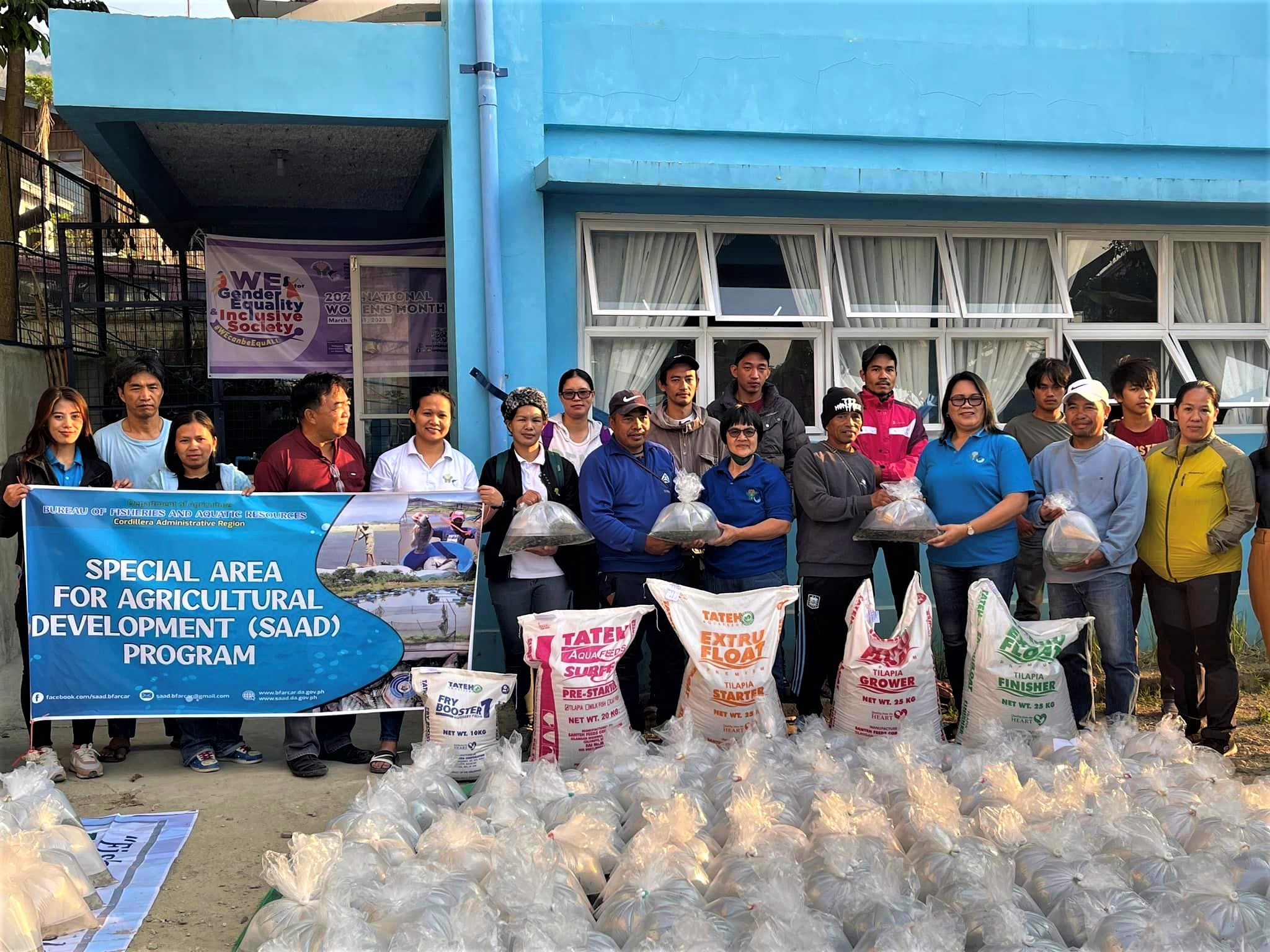
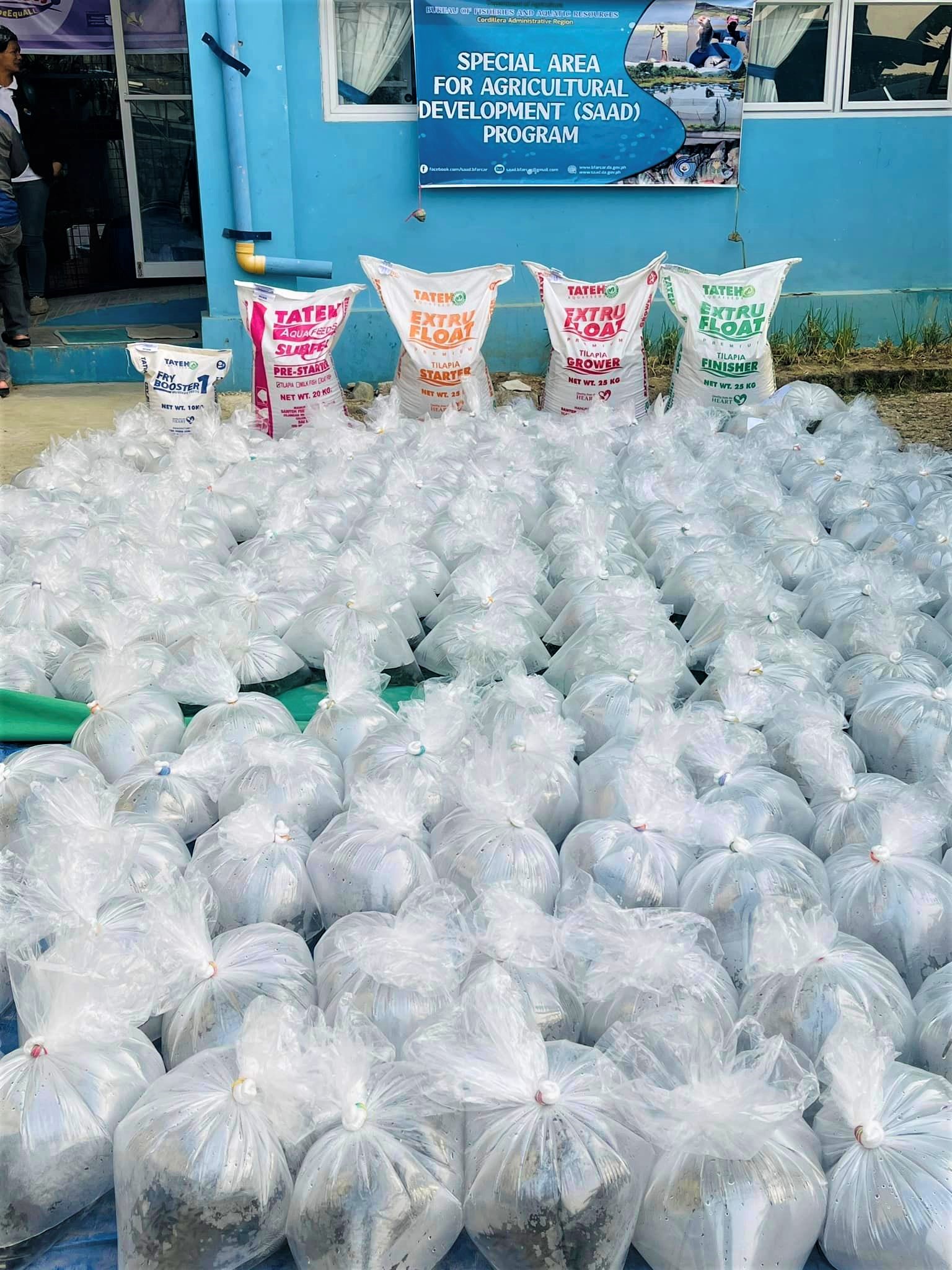

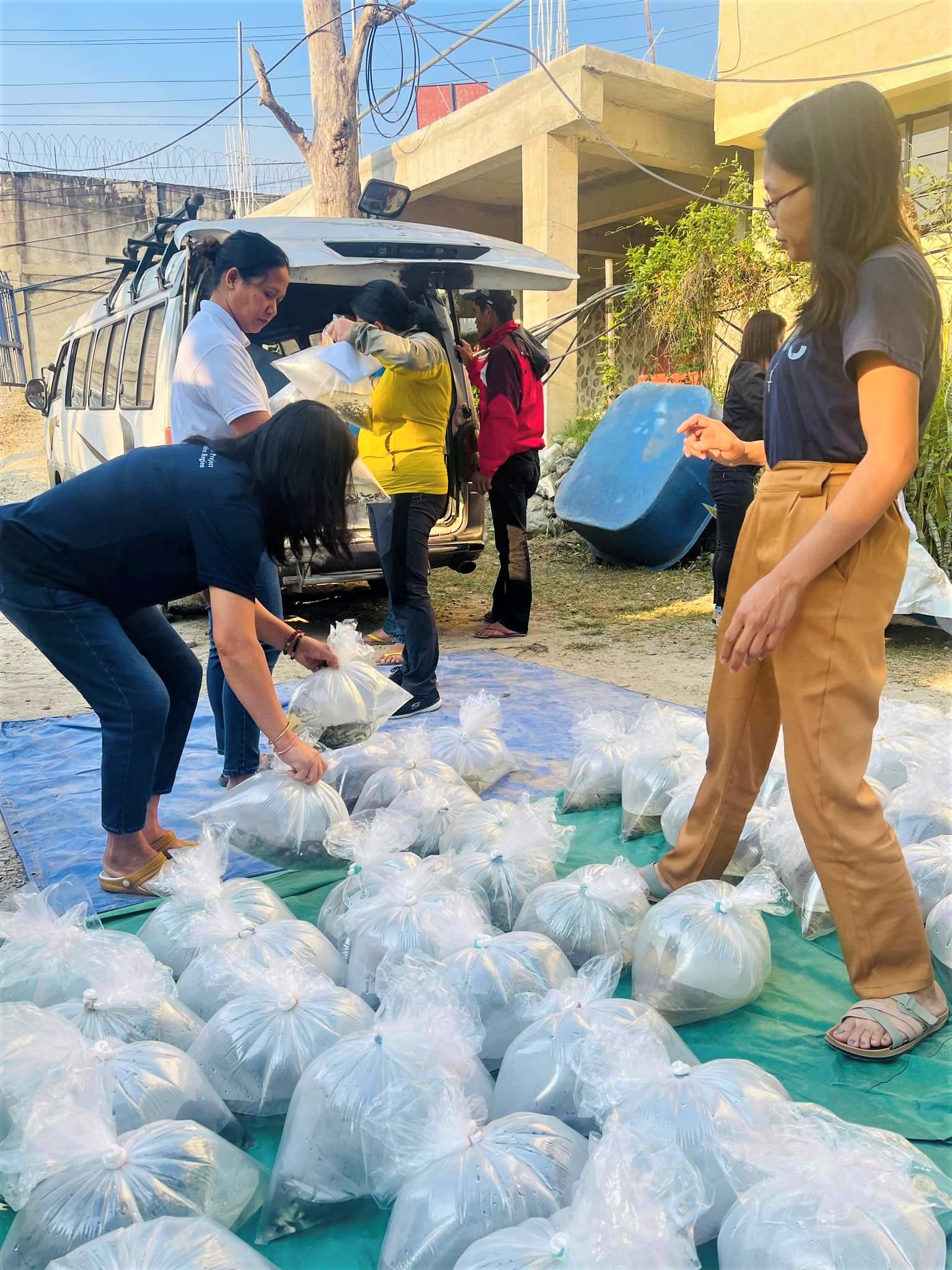
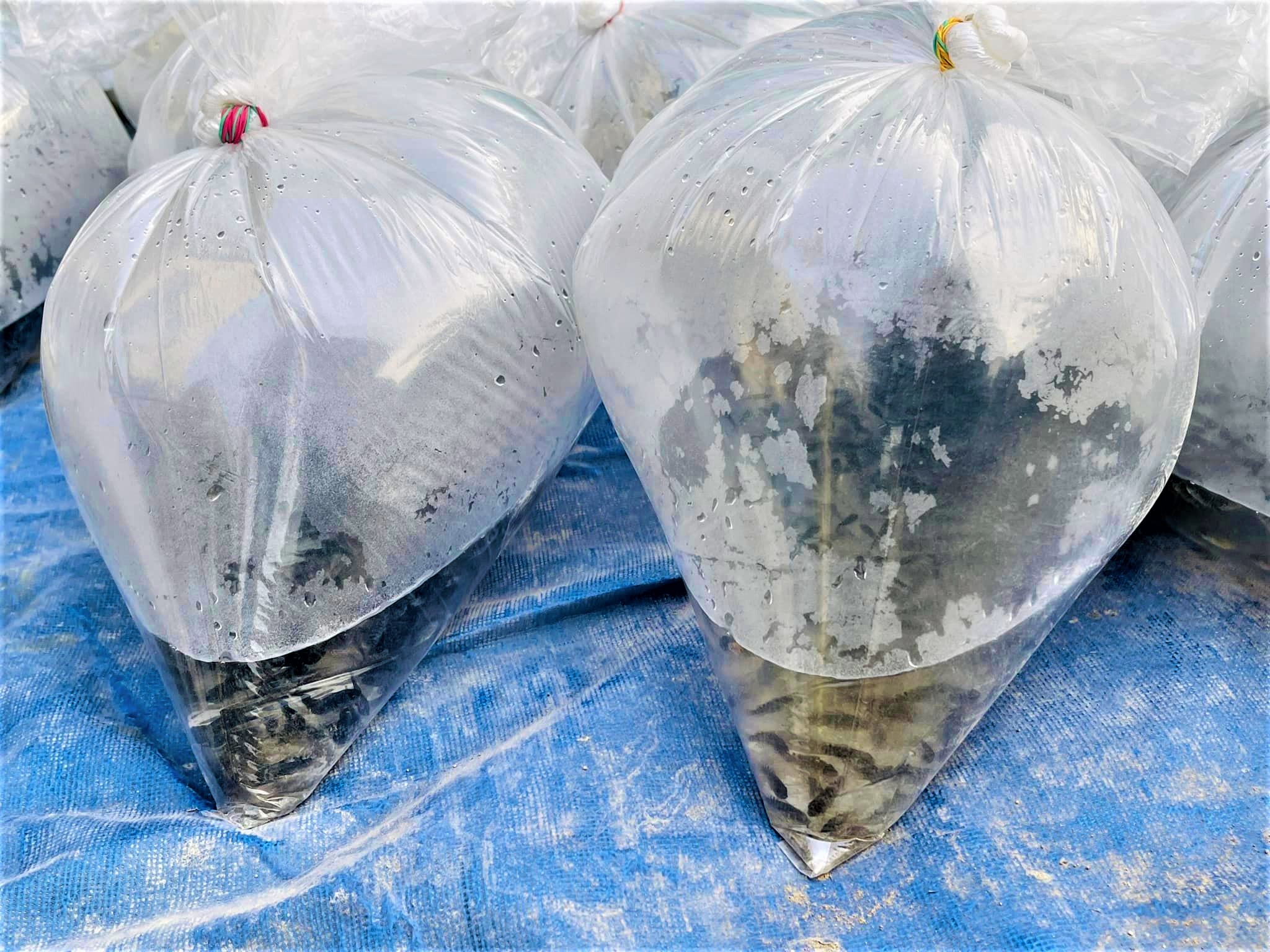
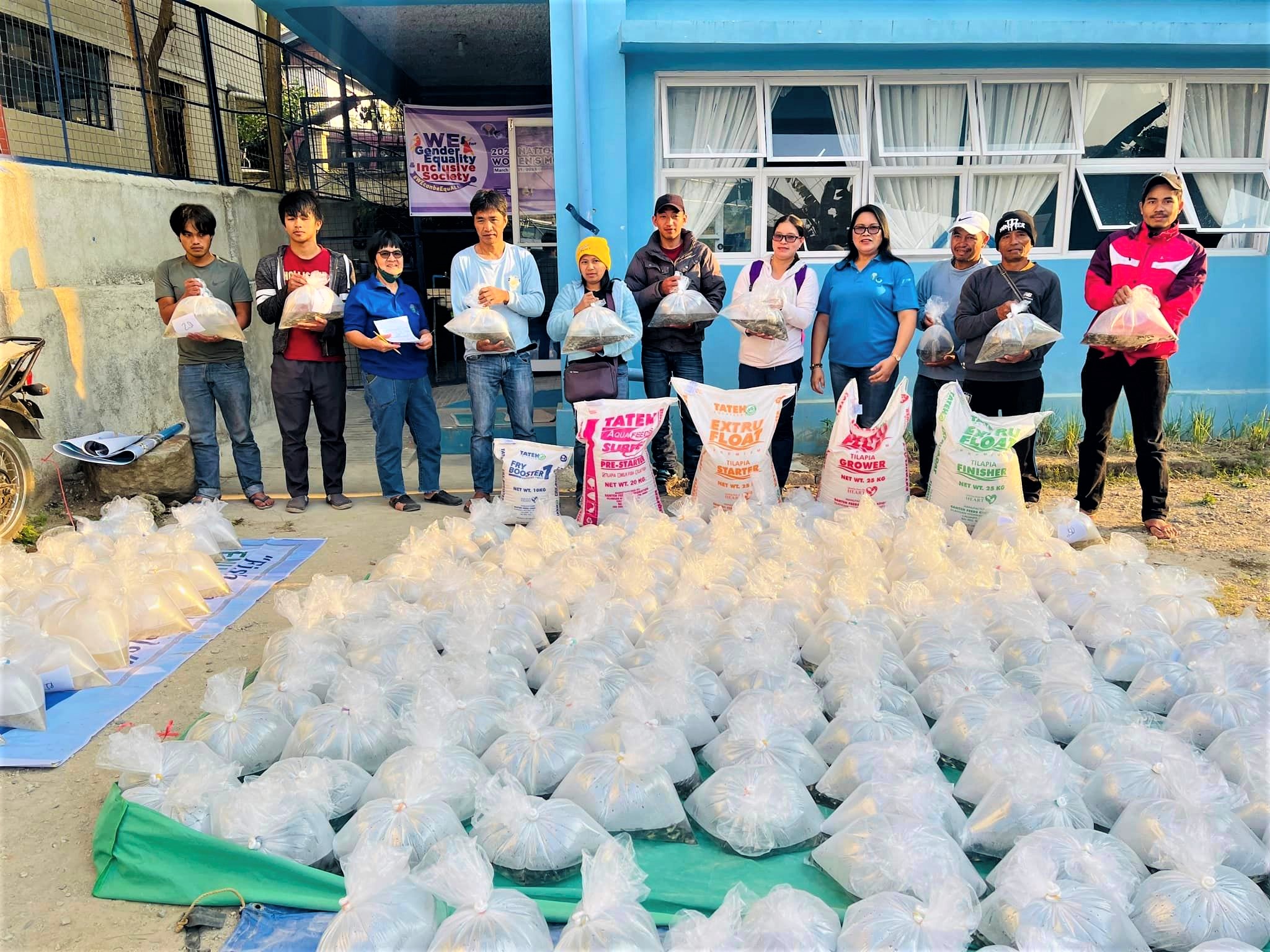

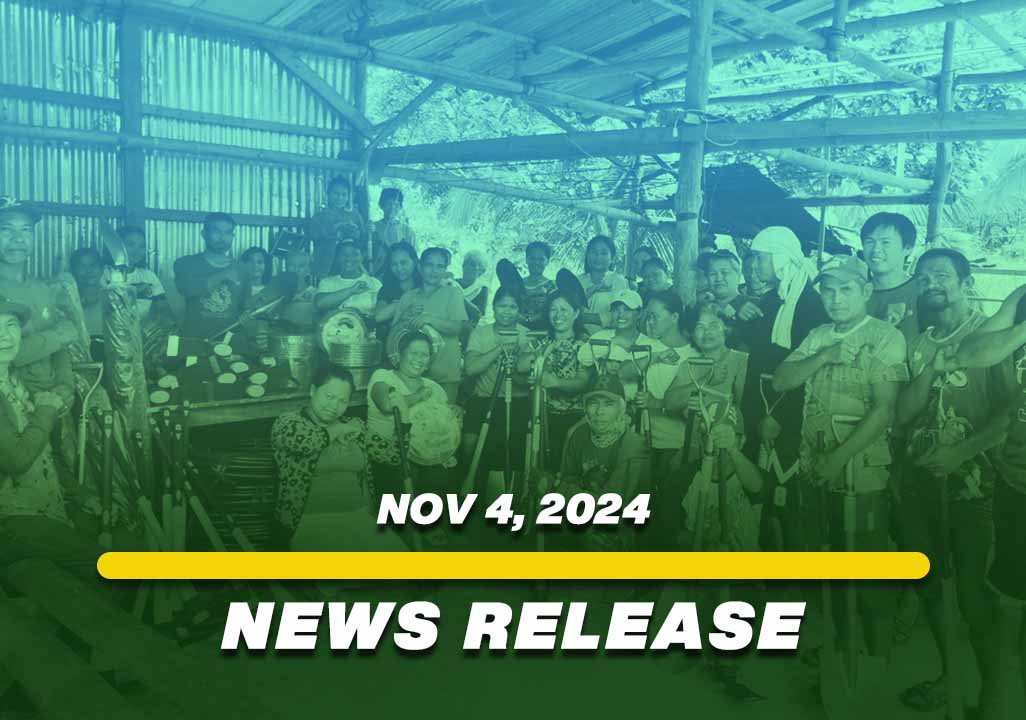
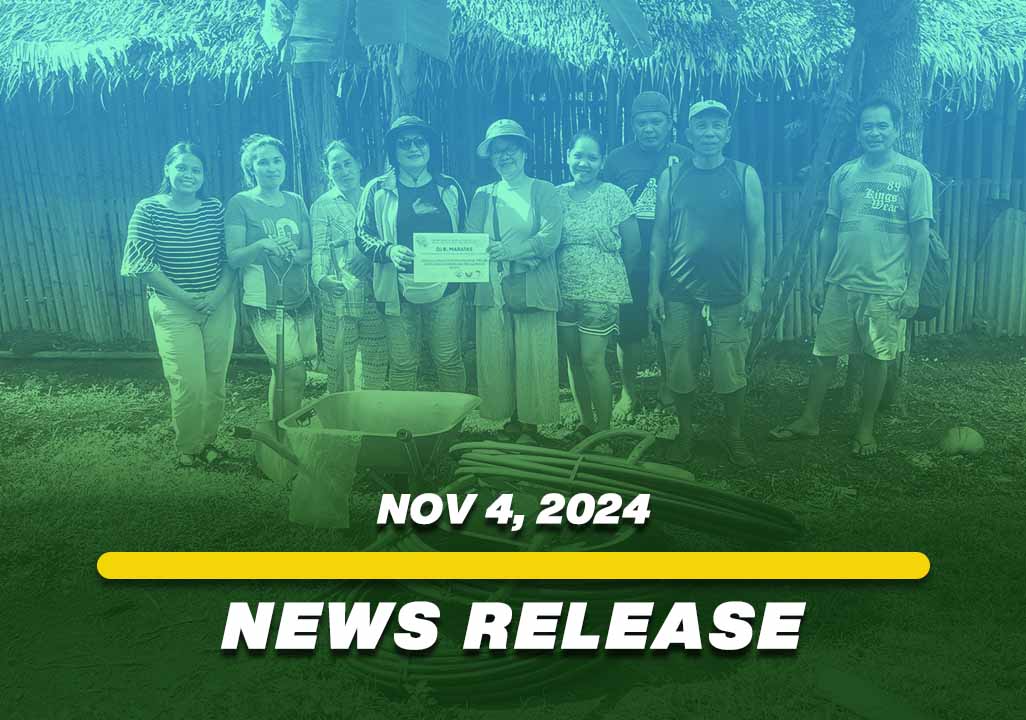
This Post Has 0 Comments